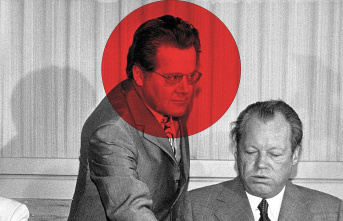Luis Montenegro has made good forecasts and has emerged as the winner of the primaries of the main conservative bastion of Portugal, the PSD, equivalent to the PP. Its acronym stands for Social Democratic Party, but it has nothing to do with that tendency and everything to do with moderation by flag.
What happens is that Rui Rio has plunged it into an insipid idiosyncrasy since he took the reins in February 2018, the prelude to successive consecutive electoral failures.
So much so that the accusing finger of the dissatisfied militants is pointed at him by the absolute majority of the Socialists in the (early) elections on January 30. Also due to the emergence of two formations to the right of its spectrum: the Liberal Initiative and Chega, a kind of Portuguese-style Vox that is gaining more and more ground and stealing voters from the PSD itself.
At 49 years old, Montenegro accumulates extensive internal experience, having served as leader of the parliamentary group for six years in the past decade.
His first words at the summit leave no room for doubt: "This is the beginning of the end of socialist hegemony." Something that almost 70% of PSD members took into account to give him their trust with the aim of redirecting the party and, above all, bringing it back together after the fracture that Rui Rio unleashed.
It is the point of renewal that the right in Portugal needed, if it did not want to be stagnant under the baton of a leader doomed to defeat at the polls. Yes, because the leader who is leaving now was more concerned with achieving a pact with the Socialists at all costs than with becoming a true alternative government.
Everyone expected Rio to present his resignation, a circumstance that did not occur at any time, as he said that "there is no rush." So it happened that he continued in his position as president of the formation and waited for the next one to pass. Only that now he ran into a more contemporary personality.
So on Saturday May 28, while Liverpool and Real Madrid played the Champions League final, the new path of the Portuguese conservatives in search of their identity was elucidated.
It was missing that a figure with charisma emerged and it was immediately seen that Luis Montenegro was going to cover that gap. At last, said the most disenchanted, fed up with seeing a second-rank PSD that barely acted as a counterweight.
Professor Antonio Nogueira Leite, from the Carcavelos campus of the Nova School of Business and Economics, defined the change of direction for this newspaper: «Montenegro stood out as a parliamentary leader between 2011 and 2016. There his performance exceeded the bar of his initial expectations and guaranteed the support that the Government needed.
In addition, he stated: “Montenegro had a firm and accurate oratory, which dazzled many supporters of the PSD. I think he will have the support of many militants, not only from the north but also from the Lisbon area». Indeed, the three main constituencies of the neighboring country supported the emerging figure: Braga, Porto and the capital.
"We are facing a game with many sensitivities and I think that Luis Montenegro started with some advantage, especially because of the loyalties that he has been building," said the same expert.
For his part, the political commentator Nuno Gouveia explained: «Montenegro was a collaborator of Passos Coelho in the years of his government. In a difficult period for the Portuguese right, he brilliantly managed to represent the government with a conservative majority in the Assembly of the Republic».
«He is a persistent, methodical and studious politician, who rose through the PSD organization chart. He is considered a person capable of building bridges with those who do not think the same way. Another quality is his willingness to learn quickly”, he continued before pointing out: “Montenegro was very critical of the previous leadership and represents a shift of the party to the right. This means that he would thus be back in his natural center-right space, forgetting Rui Rio's ideas of positioning himself in the center, if not on the left».
In his opinion, the consequence will be that the new leader will embody a "more fierce and frontal opposition to the socialist government, since he has managed to gather the support of a wide range of personalities within the PSD."
The challenge, says Nuno Gouveia, is that Montenegro "has before it a gigantic task of reconstruction because the PSD has lost influence in Portuguese society and the political space has fragmented." "But, above all, he will have to convince people that he has set himself up as a real alternative to the socialists," he correctly specifies.
The moment of truth has arrived, therefore, and the Portuguese conservatives have to take a turn to recover the role that distinguished them in other times.












